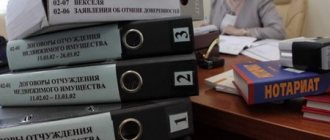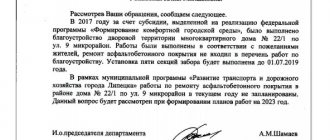- The capacity of the testator is the main requirement for a will.
- Determination of legal capacity by a notary
- If the notary has doubts about the adequacy of the testator
- What to do to ensure confirmation of the testator's capacity
We have already told you about what conditions must be met when drawing up a will in order to avoid its cancellation as a result of a challenge.
Today we will focus on another important point.
Judicial practice shows that most wills recognized by the court as invalid are recognized as such due to the fact that the testator at the time of signing the will did not have full legal capacity and could not be aware of his actions.
Unfortunately, even a notarized will can be challenged and declared invalid due to the incompetence of the testator.
How to avoid this and ensure that the will of the deceased is carried out in full will be discussed below.
In our article, we will give our readers practical advice on what needs to be done to avoid the cancellation of a will in the future due to the testator’s incompetence, and we will also tell you how a notary, when certifying a will, checks the testator’s capacity, what measures he takes in the event of doubts about the adequacy of the person applying.
The capacity of the testator is the main requirement for a will.
In accordance with paragraph 2 of Article 1118 of the Civil Code of the Russian Federation, a notary can certify a will made by a citizen who has full legal capacity at the time of making the will.
For citizens of the Russian Federation, full legal capacity arises when a person reaches the age of 18, with the exception of cases of emancipation or marriage before reaching the age of 18.
Any citizen who has reached the age of majority can bequeath their property. There is no age limit.
However, it is important that at any age, the person making the will must be fully capable.
As is usually stated in a will: “Being of sound mind, sound memory and clear consciousness, acting voluntarily, understanding the meaning of one’s actions and not being mistaken.”
The issue of legal capacity is relevant if the testator is of advanced age and, due to this, his health has certain characteristics.
The psyche of an elderly person and his intellect have their own characteristics. In some cases, this gives reason to doubt the adequacy of an elderly person.
After the death of such a relative, the heirs, ignored by the testator, who believe that their interests have been violated by the existing will, first of all question the legal capacity of the loved one and try to challenge his will in court.
This article is devoted to consideration of the main criterion for the validity of a will – the legal capacity of the testator.
What should a notary do if there is a suspicion of incapacity?
Since the notary does not have the authority to fully verify the legal capacity of citizens, if there are doubts about health, the client can send a request to the judicial authority. If a person has been declared incompetent or partially capable, then there will definitely be a court decision confirming this fact.
If the judge answers that there is no such decision, then the will can be drawn up. Until the notary has verified his legal capacity, notarial acts will be suspended.
Lawyers advise people to bring their own certificates certifying that they have no health problems. This is especially true for elderly citizens. They are most often suspected of incompetence.
If a person has mental disorders, the notary can inform his relatives about this. They already have the right to sue for a psychiatric examination. If a will has already been drawn up and the maker is declared incompetent, it can be contested.
Determination of legal capacity by a notary
When certifying a will, the notary must establish the testator's legal capacity. This task is quite difficult for a notary.
In the current legislation there are no legal norms that would regulate the procedure for determining the legal capacity of the testator, that is, there are no legal grounds for taking actions to determine the ability of a particular person to understand the nature of the actions he commits, manage them and understand their consequences from a legal point of view.
The notary establishes the legal capacity of the testator in the following ways:
- According to identity documents containing information about the citizen’s age.
In accordance with paragraph 5 of the Methodological Recommendations for the certification of wills, the acceptance of a closed will by a notary, the opening and reading of a closed will, “To confirm that a citizen has full legal capacity, the notary requires:
- an identity document to verify the age of majority;
- marriage registration certificate in case of acquisition of full legal capacity as a result of marriage before reaching the age of 18;
- a document declaring a minor fully capable (emancipated): a decision of the guardianship and trusteeship authority (if the emancipation was carried out with the consent of both parents, adoptive parents or trustees) or a court decision (if the emancipation was carried out without the said consent).”
- Through personal communication, during which the notary assesses the adequacy of the interlocutor’s behavior and his ability to assess the events taking place.
Paragraph 8 of the above Methodological Recommendations is devoted precisely to this issue. It states:
“The ability of the testator to give an account of his actions is checked by a notary conducting a conversation with the testator. During the conversation, the notary determines the adequacy of the testator’s answers to the questions asked, on the basis of which the notary draws a conclusion about the citizen’s ability to understand the essence of his actions.
A will cannot be certified on behalf of a citizen, although not recognized by the court as incompetent, but who, at the time of contacting the notary, is in a state that prevents his ability to understand the meaning of his actions or manage them (for example, due to illness, drug or alcohol intoxication, etc. ), which makes it impossible for the notary to fulfill the duty assigned to him by law - to check the compliance of the contents of the will with the actual intention of the testator, as well as to explain to the testator the meaning and significance of the contents of the will.
In this case, the notary refuses to perform a notarial act, and the citizen is explained his right to apply for certification of the will after the termination of the circumstances preventing the execution of the will.”
The first (documentary) method of determining legal capacity usually does not cause any difficulties. However, the results of the second (visual) method of determining legal capacity by a notary may not always be correct and correspond to the actual state of the testator.
If the notary has doubts about the adequacy of the testator
If, during visual contact with the testator and conducting a conversation with him, the notary has doubts about his adequacy, then, in accordance with Article 41 of the Fundamentals of the Legislation of the Russian Federation on Notaries, he has the right to temporarily postpone the certification of the will and take measures to establish the legal capacity of the testator.
A notary can send a request to the court to determine whether there is a court decision declaring the applicant incompetent.
However, this method is not always effective, because a person during his life could change his place of residence and in any of these places could be declared incompetent by the court.
The testator himself and unscrupulous relatives interested in drawing up the will they need may hide this fact.
There is currently no unified database on persons declared legally incompetent in the Russian Federation. Notaries are not notified of court decisions by which citizens are declared legally incompetent.
The law does not provide a notary with the opportunity to request from medical institutions documents about the health status of the testator, certificates from psychiatrists, and even more so, to insist on examining a person applying for a notarial act.
All this information is a medical secret and is protected by law. It can only be obtained with the consent of this person or his legal representative.
The notary may contact the prosecutor's office with a request to request information from the medical institution about the health status of the testator. At the request of the prosecutor's office, the specified information is provided. However, it should be recognized that notaries rarely use this opportunity.
If doubts arise about the adequacy of a person who has contacted a notary to certify a will, the notary may invite the relatives of the testator to examine him on a voluntary basis and provide a conclusion on his legal capacity.
Conscientious relatives usually do not neglect the advice of a notary.
The reasons why a will may be revoked by a court are discussed in this publication.
Why do you need a certificate of legal capacity?
A document certifying legal capacity is often needed for an employer to accept a job if it involves children. For example, it is often provided by teachers and educators. This paper is also indispensable for obtaining a license. But most often, a certificate of legal capacity is used for transactions with an apartment. For example, selling or buying. But in fact, the law does not oblige you to provide this document. The thing is that incapacity is determined only through the court, and in January 2021, realtors were given the right to view a special register of judicial acts. In this way, they themselves can verify that their clients are legally competent.
The notary must check the legal capacity of the parties to transactions or the person who inherits property under a will. A few years ago, notaries asked to provide this document. Now this is not at all necessary. Currently, a notary can submit a request to the federal register of judicial facts.
In addition, banks almost always require a document of legal capacity when one of the parties is a pensioner. This way they insure themselves.
Exceptions include those pensioners who have a valid driver's license at the time of signing the contract. After all, for their registration you also need this certificate.
What do the laws say about testing capacity? Legislative regulation
The expansion of the legislative rights and responsibilities of notaries is a positive development for all participants in transactions, since the verification is carried out more thoroughly. This reduces the risk of illegal actions, and transaction participants can be calm and confident that the transaction will not be challenged, since there are no grounds for this.
This is also important for the notaries themselves, since if a mistake is made through their fault, they will bear financial responsibility (Article 17 of the “Fundamentals of Notary Legislation”).
Verification of legal capacity by notaries is provided for in the “Fundamentals of Legislation on Notaries”. This is regulated by Article 43. The notary is obliged to check the legal capacity of persons, the rights of representatives and guardians of incapacitated citizens. These measures help protect the rights of citizens and avoid breaking the law.
But if everything is done by a realtor, why should the citizens themselves have such a certificate?
- In order to verify the purity of the transaction for yourself. If one of the parties is unable to make decisions, the transaction may be considered invalid. In addition, the certificate helps protect your rights if the other party tries to terminate the transaction after some time.
- To check a person's psychological health. In order for the court to declare him incompetent, someone must first file a lawsuit. If, for example, relatives did not file a claim in court, but some deviations are visible, it is worth stocking up on a certificate. Otherwise, relatives of the first party will have a chance to challenge the deal.
- To make the deal move faster. If the notary has doubts about the mental health of one of the parties, the request will be sent to a medical institution. Thus, signing the certificate may take quite a long time. But if such a certificate is already available, then it is not necessary to make an additional request.
It is worth understanding that the notary is not obliged to report why he requires this certificate. That is why he may not have clear reasons for this. Everything depends only on him. Any party to the transaction may also require such a certificate. It can reduce risks when concluding transactions and protect both parties from fraudsters.
What kind of document is it and when is it used?
A citizen may need a certificate of sanity to confirm his ability to carry out any type of property transaction. Legal capacity means that a person has reached the age of majority and is aware of the consequences of his actions. Documentary evidence may be required when a notary doubts the mental health of one of the parties performing an act of purchase, sale, or gift. The lawyer confirming the transaction has every right to request papers confirming the absence of mental illness or drug addiction.
Otherwise, the transfer of property to another person may be challenged by interested parties. It is more profitable to obtain a certificate of legal capacity from the notary in advance, as not everyone knows where to get such a document.
The document confirming the absence of mental disorders and drug addiction must contain the following information:
- the full name and date of birth of the person who contacted the organization for information;
- name of the institution that issued the certificate;
- details of the psychiatrist who wrote the paper;
- medical examination results;
- time of examination;
- signature and personal seal of the doctor;
- seal of a medical institution
When the second party involved in the transaction has doubts that the person with whom the contract is signed suffers from alcoholism or drug addiction, he will have to undergo examination at a drug treatment clinic. After passing the examination, the citizen will be able to receive the necessary certificate. The document must contain the same information as the HDPE paper. Citizens must understand that there is no register of legally capable persons, only lists of persons. registered with doctors.
Validity period of the certificate
A certificate from a dispensary is valid for one year. Time is counted from the moment of issue. After this period, you need to receive a new document. But it is possible to have an unlimited document. To do this, it must be confirmed in court. If there is a desire to restore legal capacity, this can also be done in court. In this case, the application must be submitted by the citizen himself or his relatives.
After receiving a certificate from a psychoneurological dispensary, it must be submitted to a notary in the coming days. Otherwise, the specialist has the right to again doubt the validity of the certificate.
In any transaction, the legal capacity and capacity of both parties play a key role. As described earlier, initially (from the age of 18) all people are legal and capable. But, unfortunately, this is not the case for everyone. Therefore, for large transactions, you need to have a certificate of legal capacity and be ready to provide it to a notary. If there is no such certificate, and the specialist asks to provide it, you need to issue it immediately. It is also worth understanding that the second party in any transaction must also be legally capable. Otherwise, the deal may be terminated after it has been completed at the most inopportune moment.
Of course, it is not necessary to provide a certificate of legal capacity. Therefore, citizens have the right to refuse this and find another notary. But the notary himself also has the right to refuse the client without this document.
Nowadays there are quite a lot of different fraudulent schemes. Criminals, together with black realtors or notaries, can make sure that one of the parties is left without money and without goods. If such a case is noticed, you should immediately contact the police. To prevent this from happening, you need to make all inquiries on time and read all documents completely. Then the risks will be minimal.







